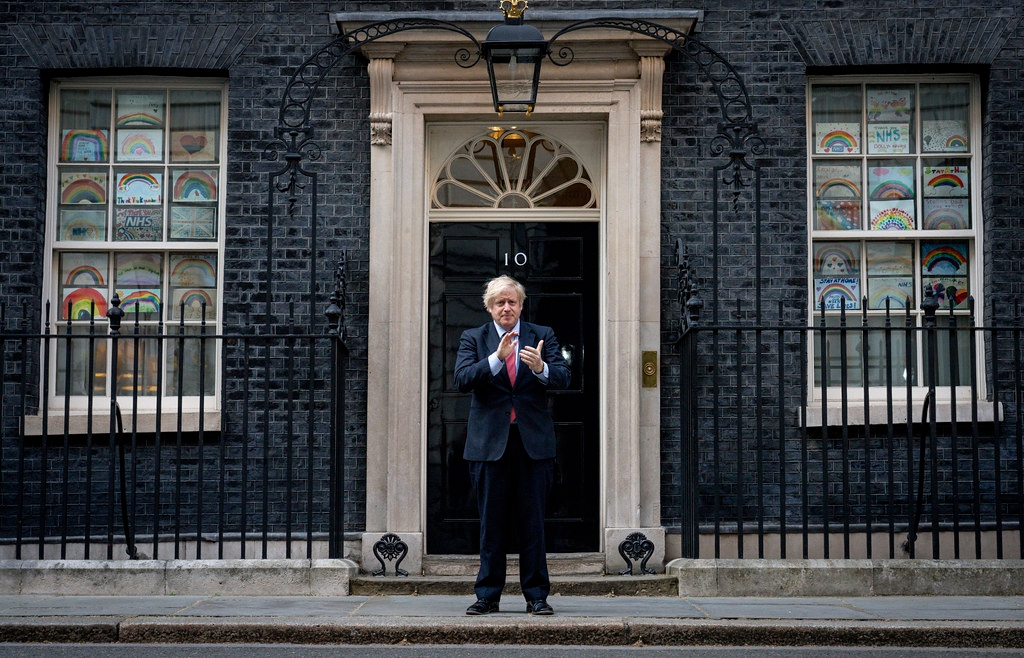When sorrows come, they come not as single spies, but in battalions. This has been a week in which pretty much everything that could have gone wrong has gone wrong in the government’s epic battle against Covid-19.
Britain suddenly has the most recorded Covid deaths in Europe and the second-most in the world; fiascos surrounding getting PPE to frontline health workers have got worse with the discovery that a planeload of supplies, dubbed ‘Air Jenrick’ after the Communities Secretary, is largely comprised of duff stuff that cannot be used; the care home epidemic continues to intensify; the number of tests being carried out has fallen back; it has become increasingly obvious – to the point of undeniability – that community testing and pro-active contact tracing was abandoned in the early days much too soon, leading to many infection clusters spreading unchecked; the superstar epidemiologist whose modelling led the government to shut down the UK economy has had more holes blown in his credibility and resigned as an advisor after being caught breaching the lockdown.
Veteran observers of the Westminster scene are meanwhile watching the government plough on with building its own contact tracing app, rather than availing itself of the joint expertise of Apple and Google, and grimacing as they recall an unbroken string of Whitehall IT disasters. Can that end well? One wouldn’t wish to bet on it.
As Labour leader Keir Starmer asked in PMQs on Wednesday, in a quote that summed up the week: ‘How has it come to this?’
After suffering something of a despatch box drubbing at his first encounter with Starmer, the Prime Minister must do better
It is way too early in the story of coronavirus to be certain that Britain will end up having suffered the highest death rate per head of population in Europe. But equally, it is now clear that as a country we are highly unlikely to look back on this terrible experience and think of our public authorities as having done particularly well.
There are all kinds of reasons being advanced as to why this might be, including England having the highest population density in Europe and the continent’s only mega city; the UK as a whole having nearly the highest obesity rates; the presence of relatively high populations of citizens from ethnic minorities that turn out to be particularly vulnerable to the disease; and plain bad luck.
That last point is not to be scoffed at. There are so many unknowns about this disease that luck is bound to be part of the story. At the outset it was confidently asserted that a lack of ventilators would be a disaster and ventilator production was one of many things to be ‘ramped up’. And yet it has turned out that mechanical ventilation is not the general life-saver clinicians initially thought it might be.
Britain’s national pandemic plan was based around an influenza-type infection – with a lower death rate and a response based on ‘herd immunity’, leading to the singling out of extra intensive care capacity as the most important thing.
To that end the lightning-quick creation of a series of Nightingale hospitals was one of the British state’s most impressive achievements of the crisis. But they have largely not been needed.
Germany meanwhile went for an aggressive ‘test and trace’ approach that limited the spread of Covid and it also clued on earlier than most that protection of care homes was a top priority. Yet its chemical industry infrastructure was an advantage when it came to scaling-up testing in those crucial early weeks that was simply not available to Britain.
Which of these factors is most significant is not really the point. The point is that we have reached a moment when excuses are being sought and prepared.
About the one metric still up for grabs for Britain to score relatively well on is the one measuring the economic impact of the crisis. Every economy is tanking. But it does not have to be that Britain’s tanks the most.
This is the difficult context in which Boris Johnson will address the nation on Sunday. Several of his key ministers and advisors are obviously exhausted. These days Health Secretary Matt Hancock reacts to the mere whiff of criticism as if he were Captain Manwaring having been told by Sergeant Wilson: ‘Excuse me sir, but it doesn’t seem to be going awfully well.’
An added complication is that for much of the media, it all brings a chance for some post-Brexit score-settling. After being proven humiliatingly wrong about the prospects of many of its post-referendum crushes – Change UK, Rory Stewart, the ‘People’s Vote’ and a so-called government of national unity to name but a few – the idea of finally cornering Boris Johnson and shattering public faith in him appears to have become an obsession for some political journalists.
So far public faith is not for budging – the Tories are still chalking up 50 per cent poll ratings and Labour trails 20 points behind. But there has still been a change in the air that suggests chillier times are ahead for the government.
On Sunday, Boris Johnson, his batteries no doubt still not fully-charged after his own illness, needs to find a way to reconnect with the British people and reassure them that the path ahead has been well-plotted.
After suffering something of a despatch box drubbing at his first encounter with Starmer, the Prime Minister must do better. While his personal ratings are still buoyant, his post-election political honeymoon – that period when he could do no wrong – is drawing to a close.







Comments